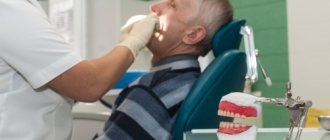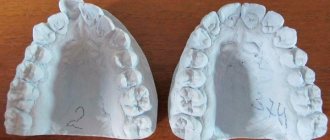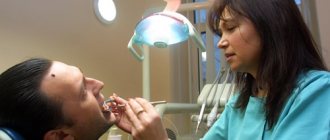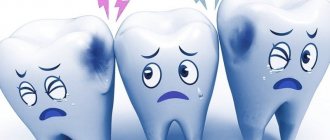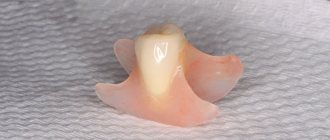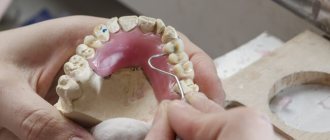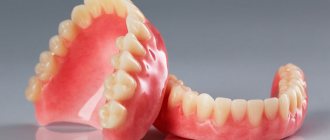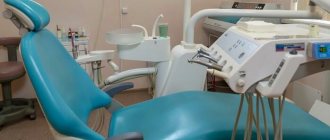Compensation payments for dental treatment - regulatory framework
An income tax refund of 13% of the amount paid can be provided to all citizens of the country who receive official income and are income tax payers. Some categories of citizens have the right to preferential prosthetics.
The legislative framework on the issue of compensation payments for dental services is as follows:
- Art. 219 Tax Code of the Russian Federation;
- PP No. 201 dated March 19, 2001;
- Letter of the Ministry of Finance No. 03-04-05/4878 dated January 29, 2018;
- Federal Law No. 178 dated December 21, 2001;
- Letter of the Ministry of Health of Russia No. 03-04-05/39799 dated September 25, 2013;
- Federal Law No. 5 dated January 12, 1995.
Changes for 2022
In 2022, there are no fundamental changes in tax legislation regarding tax deductions provided to citizens of the Russian Federation. The Tax Code allows a limited amount of personal income tax to be refunded per year. This year, the maximum amount of social deductions spent on routine treatment is 120,000 rubles. You can return no more than 15,600 rubles for last year.
Implantology is an expensive treatment, especially if the procedure was done using high-quality prostheses and in a good clinic. According to current laws, expensive treatment has no restrictions in terms of tax deductions.
The maximum limit in this case may be the final figure of personal income tax paid for the past year. You cannot refund a larger tax amount than was contributed to the budget for the reporting period.
Expensive treatment situation
Expensive treatment is a separate case to consider. The main characteristic features of this type of medical services are:
- expenses exceed established limits;
- costs for materials (for example, implants) are taken into account.
Expensive dental treatment includes the procedure of dental implantation.
This procedure differs by indicating code “2” in the certificate from the clinic. To receive compensation for treatment using dental implants, which are purchased separately and are not included in the certificate, a certificate is also required confirming that these materials were used during treatment.
Example 7. Initial data:
- patient Komova A.A. carried out a dental implantation procedure for a total cost of 325,400 rubles;
- In addition to the cost of the implants, she paid for other services in the amount of 41,000 rubles.
Solution. The following documents are issued to the patient from the clinic:
- 2 different certificates separately for the cost of implants, separately for the cost of treatment.
To the tax office Komova A.A. writes a statement:
- using code “1” she returns 42,302 rubles (325,400 * 13%) for the cost of implants;
- using code “2” she returns 5330 rubles for the cost of treatment (41000*13%).
Important! The maximum tax deduction for dentures is usually RUB 120,000. According to the letter of the Federal Tax Service dated December 25, 2006 04-2-05/7, dentures are included in tax deductions within the specified limits.
Categories of citizens who can count on compensation
Every citizen who has spent money on the purchase of medicines, provision of medical care, or voluntary medical insurance has the right to apply to the tax or social authorities of the country, as well as at the place of work, to receive a social tax deduction.
Important conditions in this matter are:
- medical care was received in a specialized clinic that is licensed and operates legally;
- medical insurance was purchased from an organization operating within the framework of the laws of the Russian Federation and with a valid license;
- purchased goods and services were paid for with their own money, which is confirmed in the form of checks.
You can receive a tax deduction not only for your own treatment or prosthetics, but also for the following relatives:
- minor children (a working parent or official guardian can receive a deduction for this);
- retired parents who have no income other than a pension (working children are entitled to receive a deduction for them);
- wives or husbands (if one of the spouses does not work, then the working spouse can receive a deduction for him).
Pensioners who continue to work have the right to independently contact the tax office or write an application at their place of work and return 13% of the funds spent on dental treatment and prosthetics. There are no additional benefits or subsidies for persons of retirement age.
Preferential prosthetics are possible for the following categories of citizens:
- officers who retired due to length of service, health conditions, reaching retirement age, as well as family members;
- military and civilians taking part in military training;
- customs officers;
- firefighters;
- employees of internal affairs bodies;
- participants of the penal system;
- persons who received the title of Hero of the USSR, Russia, Socialist Labor and Labor, full holder of the Order of Glory and the Order of Labor Glory;
- military personnel and internal affairs officers who left the service due to becoming disabled while performing their duties.
Decisions of lower courts
But the patient’s patience has already run out. Instead of continuing treatment and installing a permanent prosthesis instead of a temporary one, she filed a claim with the Sovetsky District Court of Chelyabinsk. Initially, the client demanded to terminate the contract with the dental LLC and recover from the company 300,000 rubles, which she paid for treatment, as well as compensation for moral damage of 500,000 rubles, a penalty and a fine. After which the plaintiff clarified the requirements - she asked to oblige the dentist to complete the treatment and recalculate its price, reducing it by the amount of poorly performed services.
Is it possible to get a deduction for the treatment of the spouse's parents?
Read more…
The court questioned the plaintiff's attending physician as a witness. He said that the timing of treatment was due to the fact that the installed implant was rejected by the body, and additional manipulations were required. He explained the discomfort while eating by the fact that there was a temporary prosthesis on the upper jaw, but not on the lower jaw. According to him, the patient refused to work on her lower jaw for two years. Burr, according to him, in such cases is normal; speech defects occur while getting used to the prosthesis.
note
In cases of quality of treatment, a forensic medical examination is almost always ordered. In this dispute, the expert's opinion and his testimony in court contradict each other. The paper states that the patient’s complication occurred for a combination of reasons, including the delay. At the same time, the specialist did not see a connection between the shortcomings of services and the development of the disease. At the court hearing, the expert explained that by “disadvantage” we mean a complication during treatment.
The first instance ordered a forensic medical examination in the case. The experts agreed that the patient had complications that arose in combination: due to the protracted timing of temporary prosthetics and against the background of an existing disease. Despite this, experts concluded that there was no connection between complications and treatment. The experts were also interrogated at the meeting, where they explained that the medical procedures themselves were performed without flaws: the clinic developed a normal treatment plan, and its incompleteness cannot be considered a drawback.
The first instance decided: the fact that the clinic provided the patient with poor quality services. The plaintiff herself refused treatment, this led to complications, so the court rejected her claim (case No. 2-258/2019).
note
The forensic examination was carried out... by a former teacher of the doctors who treated the patient. Bias and communication between experts and doctors are common in small towns. The court should have ordered a forensic medical examination in another region. The claim may be satisfied if, during a new examination, a re-examination is carried out, the conclusions of which turn out to be different. But experts consider the victim’s demand to oblige these same doctors to complete the patient’s treatment to be illogical and unrealizable. The case may become a kind of precedent for disputes where the contractor delays treatment, which leads to the development of diseases.
The appeal indicated that, in the provision of services, the company nevertheless committed, albeit minor, violations that did not lead to complications, but the experts reported them. Therefore, the court ordered compensation for moral damages (10,000 rubles) in favor of the woman.
Dismissal for health reasons: what does it mean?
Read more…
The cassation court corrected the lower court: since the service was not provided with the highest quality, then a fine must be collected from the company. The Seventh Court of Cassation of General Jurisdiction sent the case for a new consideration; upon re-examination, the appeal decided to collect a fine of 5,000 rubles from the clinic.
Who is not entitled to monetary compensation?
Reimbursement for treatment and prosthetics is not available for the following categories of individuals:
- Pensioners who do not have any other income subject to personal income tax cannot apply for a social refund. According to the law, only persons who are officially citizens of the country and carry out activities subject to personal income tax can count on monetary compensation. Pensions are not subject to this tax.
- Persons under 18 years of age cannot claim financial compensation due to age restrictions and lack of wages.
- Unemployed citizens of the Russian Federation.
- Persons who do not have Russian citizenship.
- Individual entrepreneurs operating under UTII and simplified taxation system.
Receiving compensation for disabled people
Persons with disabilities of any disability group are legally classified as beneficiaries. They have the right to free treatment and prosthetics. To receive compensation, a disabled person or his representative must collect the following set of documents:
- passport;
- certificate of family composition;
- a certificate from dentistry about the urgency and necessity of providing the service;
- insurance;
- statement.
Let's summarize.
- Refunds of personal income tax for dental treatment and prosthetics in 2022 are carried out in accordance with established legal standards. The maximum limit is 15,600 rubles.
- Among the expensive treatment procedures, only dental implantation is indicated. The refund is 13%.
- Based on the information contained in the certificate from the clinic, the tax deduction amount is calculated.
Dentist services and calculation examples
You can receive compensation for the following types of dental services:
- treatment of teeth, bleeding gums, caries and other oral health problems;
- filling;
- prosthetics;
- installation of braces;
- teeth whitening procedure;
- oral hygiene procedures, including teeth cleaning;
- implantation.
When preparing a package of documents for the tax authority and for the accounting department at your place of work, you should request a certificate from the dentistry where the treatment was carried out. The document specifies what type of service is provided - ordinary or expensive.
Example of tax deduction calculation:
Russian citizen Olga Petrova paid income tax in the amount of 78,000 rubles for 2022. In the same year, she was in a dental clinic, where she received dental treatment at a total cost of 80,000 rubles and implantation of dentures at a cost of 600,000 rubles.
- 80,000 * 13% = 10,400 – funds available for reimbursement for treatment;
- 600,000 * 13% = 78,000 – tax refund for expensive treatment;
- 120,000 * 13% = 15,600 – the limit available by law.
Olga has every right to reimburse personal income tax for routine treatment, because the amount to be reimbursed does not exceed the established limit.
78,000 – 10,400 = 67,600 is the balance of income tax paid by Olga for 2022.
Having a balance of 67,600 rubles, Olga will no longer be able to return the entire amount of income tax (78,000 rubles). In this situation, Olga’s husband could receive a refund, whose salary last year was 120,000 rubles, and the amount of income tax paid was 187,200 rubles. But for this it is important that it is the husband who pays for the implantation of Olga’s dentures. He should have done this from his own account and received payment documents from the clinic in his name.
Main aspects
A tax deduction can be thought of as a reduction in the amount of income tax, in this case from a dental clinic.
When paying for the services of a dental treatment specialist, the organization as a legal entity must have a license to operate and be officially registered.
The Tax Code of the Russian Federation indicates the possibility of the NDF taxpayer to receive compensation from the state for expenses incurred to pay for treatment and dental prosthetics.
The law also sets limits and restrictions on the amounts to be reimbursed. Today, this limit is set at 15,600 rubles. This means that only 13% of the amount, which cannot exceed 120,000 rubles, is refundable. If the limit amount is exceeded, the tax compensation remains at the same level.
Transactions to which benefits do not apply
Categories of beneficiaries can have free dental treatment and prosthetics, but only if the following conditions are met:
- all medical procedures must be carried out by specialists only in public dentistry and public medical institutions;
- prosthetics are made from ordinary, most affordable Russian materials, without using precious metals, ceramics, expensive foreign materials, etc.;
- The list of free services is limited; it can be obtained additionally from a social service worker, but it does not include implantation and other types of expensive treatment.
If during filling or making a prosthesis the patient wants to use expensive materials, then he will have to pay extra for them from his own resources. Choosing private dentistry deprives the recipient of the opportunity to take advantage of state subsidies.
Are there any restrictions on receiving benefits?
Preferences do not apply to expensive materials . However, if a Russian wants to install high-quality prostheses, he can pay the difference in the price of preferential and expensive materials himself. Preferences for dental prosthetics can be obtained once every 5 years. The warranty on installed prostheses is 12 months.
Since the number of applicants for preferences is quite large, and the number of funds from the budget is strictly limited, prosthetics for beneficiaries are made from inexpensive materials, using plastic and acrylic acid. If the chewing function is completely lost, a prosthesis is made, which is fixed using a special fixative.
If a Russian beneficiary suffers from an allergic reaction to plastic, then if he has a medical certificate that confirms such an allergy, a more expensive prosthesis can be made for him . This can be a clasp hypoallergenic prosthesis, which is secured to the jaw with clasps, or an overlay made of nylon thermal paste, fixed with soft hooks.
After installation of the denture product, the citizen is given a guarantee, according to which he has the right to repair or replace the prosthesis within a specified period. Usually it is 6-12 months, but a citizen can take advantage of the warranty only if there is evidence that the product broke through not his fault or as a result of improper use.
Services that are not provided within the framework of the preference include:
- Installation and production of metal-ceramic prostheses.
- Installation of implants.
- Restoration of products made of expensive metals.
- Repairing and manufacturing permanent structures that prevent abrasion of tooth enamel.
Design rules
Regulatory documents allow receiving the due amount for the past year, but it is also possible to receive a deduction in the current year if the treatment was also received before the end of the reporting period.
Where to contact
To receive an income tax refund, you can contact the Federal Tax Service at your place of residence or resolve the issue at work. If the dental service was provided in the current year, then you don’t have to wait for the end of the year and apply for a deduction from your employer, so that the very next month from the moment of application you receive wages without a 13% deduction (and so on until the entire amount billed for reimbursement will not be repaid).
To receive money through the tax authority, you need to request 2-NDFL from your employer, fill out a 3-NDFL declaration, collect the necessary package of documents and submit to the Federal Tax Service in person, by mail or through the website. After four months, funds should arrive in the bank account specified in the application.
2-NDFL
3-NDFL
Required documents to receive a deduction
The package of documents required to be submitted to the tax authority includes:
- 2-NDFL from the place of work;
- completed declaration 3-NDFL;
- application of the established form;
- contract for the provision of medical services;
- documents confirming payment;
- child’s birth certificate (if the application is for a child);
- marriage certificate (application for husband or wife);
- own birth certificate, documents on subsequent change of last name or first name (appeal for parents).
Is compensation possible for treatment already performed?
According to the legislation of the Russian Federation (clause 7 of Article 78 of the Tax Code of the Russian Federation), you can apply for an income tax refund to the Federal Tax Service or take advantage of the personal income tax credit at your place of work within three years from the date of receipt of the service. For example, in 2022 you can file a return for 2022, 2022, 2022.
It is worth postponing this issue for three years only if there is an objective need. During this time, amendments to laws may be made, the personal income tax rate, the situation with the employer may change, and other events may occur that will further complicate the process of returning the money due.
The procedure for filing a deduction for dental prosthetics
There are two ways to reimburse funds: the Federal Tax Service at the place of registration or by the employer. The first option involves transferring funds to your personal account one-time in full. The second is receiving a salary without deducting personal income tax within the deduction amount.
Registration procedure
- It is necessary to keep the contract and receipts for payment, including diagnostics, therapy, and production of prostheses.
- After a year, contact a medical institution and request a certificate of a certain form.
- Fill out a declaration of income, where you indicate the right to a refund.
- Send the declaration and package of documents to the Federal Tax Service at the place of registration;
- Wait for the results of the desk audit within three months.
- To receive funds, write an application indicating account details for the tax service or provide a document to the employer.
You can file an income declaration yourself on the inspection website www.nalog.ru, as well as in the taxpayer’s individual account. There you can track the progress of the desk audit and decisions on payments.
Legitimate reasons for refusal
After four months, instead of the expected amount, a refusal may come. This can happen for the following reasons:
- errors when filling out 3-NDFL;
- the information provided in the declaration is false;
- incompleteness of the submitted information.
For example, if a husband paid for his wife’s treatment, then it is important to provide proof of payment from the husband’s account (current account statement). It should be assumed that if the document necessary to make a decision is not available, the applicant may be refused.
Every working citizen of the country can receive a tax deduction for dental services. For certain categories of citizens there are preferential conditions for prosthetics and dental treatment. The procedure for returning money from the state is simple: it is important to fill out 3-NDFL correctly and submit a complete list of documents. You are allowed to contact either your employer or the tax authority.
Tax deduction for pensioners
The main condition for a refund is payment of income tax. Many pensioners do not have additional sources of money other than pension payments. The law outlines the conditions for processing social deductions for persons of retirement age.
The right to a refund exists if the pensioner:
- continues to work and make tax deductions;
- there are working relatives (spouse, children, brothers, sisters) who will be able to accept a tax deduction for dental prosthetics;
- receives income from other sources and pays taxes.
